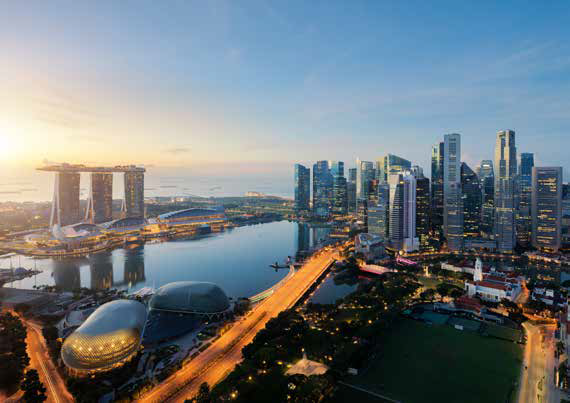To support your global practice, ACC Docket offers country-specific law facts from your peers who’ve been there — literally.

| SIAC Facts | The Singapore International Arbitration Center, or SIAC, handled 402 new cases from parties in 65 jurisdictions in 2018. |
| The SIAC’s top foreign users were from the United States, India, China, the Cayman Islands, Hong Kong SAR, Indonesia, Japan, Malaysia, South Korea, and the United Arab Emirates. | |
| Corruption | According to Transparency International’s 2018 Corruption Perception Index, Singapore ranked third “cleanest” (i.e., least corrupt) out of the 180 nations surveyed. |
| Additional resources | www.siac.org.sg |
| The International Comparative Legal Guide to Investor-State Arbitration 2019, 1st Edition | |
| Global Legal Insights — Litigation & Dispute Resolution 2018, 7th Edition |
As multi-jurisdictional disputes increase, so does the need for an open, neutral, and cost-effective forum to resolve them. Singapore may be the answer for multinational companies — and their in-house counsel.
Singapore has steered its overall development and growth toward becoming a hub for international dispute resolution. The Singapore International Arbitration Center (SIAC) has seen phenomenal growth and acceptance as a leading arbitration center globally. In 2018, the SIAC was ranked the most preferred arbitral institution in Asia and third in the world, after London and Paris, according to the Queen Mary University of London International Arbitration Survey. Over the last decade, SIAC’s case filings have increased by a factor of four — growing faster than the London Court of International Arbitration.
In addition to the SIAC, Singapore has established the Singapore International Commercial Court and the Singapore International Mediation Center. Singapore’s Minister of Law K. Shanmugam explains that the country’s aim is to be “well-positioned to offer commercial parties a comprehensive suite of dispute resolution options to support their business needs.”
Singapore’s sound legal infrastructure makes it well-equipped to serve as a epicenter for cross-border, multi-jurisdictional disputes. The republic typically scores well on the rule of law and corruption indicators — in the 2017 World Economic Forum’s Global Competitiveness Report, Singapore was ranked first in the world for the efficiency of the legal framework in settling disputes. Additionally, being situated next to economic powerhouses such as China and India, which send many arbitration cases here, contributes to Singapore’s functionality as an international hub.
Furthermore, Singapore has a supportive legislative framework in favor of arbitration. It has adopted the Model Law and New York Convention, both international best practices for arbitral procedure. Singapore also enjoys a reputation for neutrality. Its judiciary is considered independent and impartial, positioning it to thrive as an international dispute forum.




